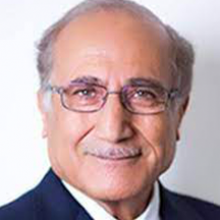You are here
Tunnelonomics and politics
Jul 27,2015 - Last updated at Jul 27,2015
I mined the Internet to see if anyone had used the term “tunnelonomics”, but did not find any reference. Thus, I shall assume that this word is my own coinage and now I have the arduous task of trying to explain its meaning.
The besieged Gaza Strip had resorted to building at least 1,000 tunnels into Egypt and established an underground economy. All the tools of ordering goods, packing and smuggling them, inspecting the items and eventually paying for them, were developed into meticulous systems. Thus Gaza, which is still immorally and illegally besieged, found a way to circumvent the Israeli-imposed blockade.
Some of these tunnels were discovered going into Israeli territories. Those were only discovered, according to Israeli military sources, during the 33-day war of 2014 between the entire Israeli army and a few thousand elements of the Palestinian resistance.
Two weeks ago, an infamous drug trader and mafia boss managed to escape from a Mexican maximum security jail. A mile-long tunnel was dug under his prison cell with all the amenities. El Chapo, as the gangster is known, is yet to be found. It was a carefully planned and thoroughly executed escape that would dwarf in comparison with the rumoured escape from the federal prison on Alcatraz Island more than half-a-century ago.
Hollywood is fond of such stories: The Shawshank Redemption (1994), Escape from Alcatraz (1979) and The Great Escape (1963) are but a few examples. But the first, a Stephen King story turned into a movie, is the most relevant to us here. The hero built a tunnel from his cell and managed to escape.
Thus, underground tunnels could be economic conduits in both formal and informal economics. Yet, the Iran nuclear negotiations provided a new, deeper sense of this tunnelonomics notion.
While the P5+1 group (the UN Security Council’s five permanent members plus Germany) and Iran were deeply involved in details over textual nuances of the agreement in front of cameras and world media outlets, there were other tunnel negotiations going on. How to divide the Iranian economic cake was the subject matter, especially what to purchase (or sell) in exchange for Iran’s some $100 billion in frozen assets soon to be released.
The hotels in Teheran are packed with American, European and Oriental businesspeople seeking lucrative bargains in this new frontier. The vice chancellor of Germany headed a large business and official delegation to Iran. The archfoe of Iranians during nuclear negations, the French foreign minister was also there this past week. Many other delegations will follow.
This is the result of the tunnel negotiations leading to tunnel agreements. The question that remains on everybody’s mind is: “Was there a third course of negotiations in a deeper tunnel to agree on the future of political P5+1 and Iran?”.
This is what everybody is waiting to see — how will it impact the region?
The writer, a former Royal Court chief and deputy prime minister, is a member of Senate. He contributed this article to The Jordan Times.













